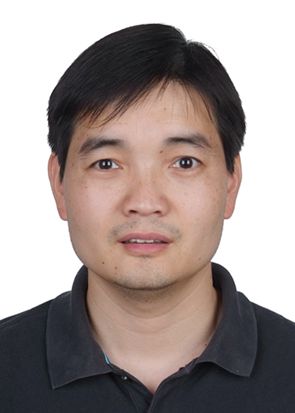Principal investigatorName: Hongbin JiDistinguished Adjunct Professor from CAS , PhD, Distinguished Adjunct Professor from CAS
Position: Affiliation: School of Life Science and Technology, Institute of Biochemistry and Cell Biology, Shanghai Institutes for Biological Sciences, CAS
Honor: Education Background:
Working Experience:
Group Introduction Research Area:
Lung Cancer Plasticity; Adenocarcinoma to Squamous Cell Carcinoma Transdifferentiation; Drug Resistance; Metastasis; Genetics and Epigenetics; Immune-microenvironment; Immunotherapy;
Research Interests:
Lung cancer is composed of small cell lung cancer (SCLC) and non-small cell lung cancer (NSCLC), the latter can be further divided into lung adenocarcinoma (ADC), squamous cell carcinoma (SCC) and large cell carcinoma. Lung cancer is one of the most devastating diseases worldwide with 5-year survival rate approximately 15%. The high mortality is mainly attributable to the poor understanding of the mechanisms involved in lung tumorigenesis. Our research interests are to decipher the molecular mechanisms involved in lung cancer initiation, malignant progression, metastasis as well as phenotypic transition. Our previous efforts have resulted in the identification of RET fusion as oncogenic driver in lung adenocarcinoma and the RET fusion has now served as molecular target in lung cancer patients. More importantly, we have provided first convincing evidence illustrating the lung ADC-to-SCC transdifferentiation (AST) and this process might represent a novel mechanism of lung cancer drug resistance. On the topic of these exciting findings, we will continue to focus on the understanding of molecular mechanisms in lung tumorigenesis. Our current interests mainly include the following three fields: 1)Molecular mechanisms underlying lung AST in linking to drug resistance We will take advantage of genetically engineered mouse models (GEMMs) as well as organoids system to recapitulate the AST process, which allows us to look into great details and provides the landscape view of essential molecular events using combined new technologies, e.g., single-cell sequencing, lineage tracing, 3D genomics and proteomics. Based on the better understanding of the AST process, we will perform high-throughput screening of small molecule compound library and identify those effectively and specifically kill SCC. Hopefully these compounds will enter clinic to help lung cancer patients with AST and/or squamous cell carcinoma. 2)Molecular mechanisms underlying SCLC chemoresistance and the overcoming strategies SCLC is the most malignant and deadly subtype of lung cancer. It responds well to chemotherapy at the initial treatment. However, SCLC could quickly develop chemoresistance and this remains as a significant hindrance for clinical management. To understand the evolution process of SCLC chemoresistance, we will establish the patient-derived xenograft (PDX) and organoids model and use them for continuous treatment until the development of drug resistance. With the integrative epigenetic, genetic and proteomic studies, we will hopefully provide a comprehensive understanding of key molecular events underlying SCLC chemoresistance and identify potential druggable targets for overcoming the drug resistance. 3)Lung cancer immuno-microenvironment and better immunotherapy strategies Immune checkpoint blockade using the programmed cell death protein 1 (PD-1)/PD-L1 antibodies has been proven as a big success. However, only 20~30% of lung cancer patients indeed benefit from such immunotherapy. A better understanding of lung cancer immune-microenvironment composition and dynamic evolution will improve current immunotherapy and even benefit those non-responders. We will dissect different types of immune cells using clinical lung cancer specimens and test their functions, with a particular interest in regulatory T cells (Treg). These studies will hopefully uncover the essential mechanisms underlying the non-responsiveness of lung cancer patients to immune checkpoint blockade and provide better strategies for improved immunotherapy. Research AchievementRepresentative Publications (*First Author, # Corresponding Author)
MonographPatentFundingAwardsResearch AchievementGroup Member and Photo |



